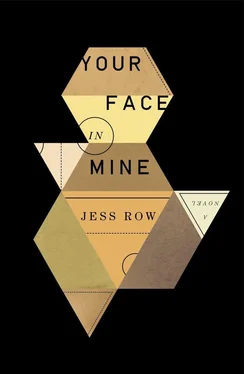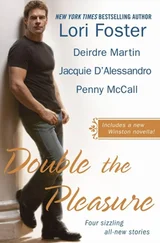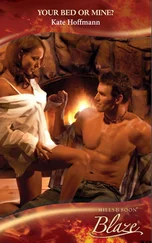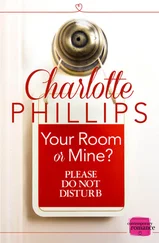That’s really fair. You get to be the authority, but yet you don’t count.
You don’t get to decide what’s fair, she said. Don’t you understand? She ejected the tape, before I could stop her, and flipped it into the backseat, among the Subway wrappers and 7-Eleven coffee cups, the broken microphone stand, and the guitar-string envelopes. You get to shut up, she said. That’s your special job. You get to not have rights for a change. Shut up and go away and leave black people alone , for once.
—
I didn’t listen. Or maybe, in some sense, I did.
At Willow, in place of community service, we had what we called volunteer jobs , assigned by the principal’s office, six hours a week minimum. And the black people I knew in any true sense — any real recognition, any actual conversation — were all from my VJ shifts downtown: soup kitchen, sophomore year; food pantry, junior year; community health clinic, senior year. Mostly my supervisors were solemn, tight-mouthed men, ex-cons, Vietnam vets, halfway-house residents, who hardly bothered to learn my name; but there were always others, who asked why I wore my hair that way, who wanted to know how many hours of community service I’d been sentenced to, and what I’d done to deserve it; who offered me menthol cigarettes, which I graciously, nauseously accepted, who told me something about doing a month in the hole at Lorton, or being shot out of a helicopter in Khe Sanh.
And then there was James, a category of his own. James supervised a whole crew of prep school do-gooders — PSDGs, that was his term — at the Belinda Matthews Memorial Food Pantry on Saturday mornings, teaching us how to process a hundred pounds of cast-off lettuce, how to stack boxes of government cheese, how to load a shopping bag so it wouldn’t split. He stood a head taller than most of us, six-five, in an army jacket, with a shining bald dome, a crocheted skullcap, and a silvery soul patch, like an aging hero from a Melvin Van Peebles movie. He told us he’d been in the same City College class with Kurt Schmoke, then the mayor; after that, he’d turned down a scholarship to Howard, traveled the country playing bass in an R&B band, and spent some time with the Peoples Temple in California, years before Jonestown. But I knew, even then, he said, more than once, I knew that Jim Jones was a crazy motherfucker. It was well known that he would screw anything that moved, anybody that came within ten feet. Man or woman. That was how he did it, you know. Everybody felt dirty. Everybody was compromised. Closer you get, the more compromised. So I packed my bags and got out of that scene.
And then what? Alan once asked him. We were on the same shift, in the fall of our junior year; we’d go straight from pitching rotten tomatoes to band practice. What’d you do then, after Jim Jones? How’d you get back to Baltimore?
James palmed a cantaloupe from a wax-board crate, sniffed it, like a chef looking for the peak of ripeness. Son, he said, looking straight at Alan, I did cocaine. Nothing but cocaine for fifteen years. You hear? Bought, sold, sniffed, ate, shot up, smoked, stuck it on my gums, stuck it up my ass once, I was that desperate. Took it into prison with me, took it right up to the moment I left. Fifteen years in the white mountains. Six of them in jail. Then I found God, and here we are.
I guess we should take that as a warning, Alan said.
No, James said, and he coughed, politely, to keep from laughing. I’m not here as a warning. Not to you.
He was a Muslim, though he rarely discussed it; not Nation of Islam, but NBIM, which, he told me once, stood for New Baltimore Integrated Mosque, a special congregation where Arabs and Pakistanis and black people all worshipped together. Occasionally, if I arrived early enough, I found him doing morning prayers outside in the empty lot next to the food pantry’s row house. Inshallah, he always said, when we talked about how many bags we’d distribute that day, and Alan and I started doing it, too, as a joke, first, and then without thinking. Inshallah, we could sell fifteen T-shirts. Inshallah, if you get into Wesleyan.
It happened to be in the same moment that I came to know James that I read The Autobiography of Malcolm X for the first time, and came upon the rapper Paris, who referred casually to blue-eyed devils and sons of Yacub , as if talking about his uncle Bill from Indiana. At the Black Cat bookstore on Read Street, I found copies of The Final Call and the New Afrikan Party Newsletter , and sat reading, for an entire Sunday afternoon, one column of tiny print after another, mesmerized by explanations of how the downfall of White Amerikkka could be predicted by the phases of the sun, how school health clinics and Planned Parenthood were agents of genocide, how black people could use shea butter to boost their natural immunity to AIDS.
There was something refreshing about being called a devil. This was in 1991, at the very peak of the crack wars, when Baltimore was Murder Capital for the first time; I had just gotten my license, and I drove myself, alone, or sometimes with Alan, down to the food pantry twice or three times a week, and the fact of being independent changed everything I saw, as if I had to own the city for the first time, having to find my own parking spaces in it. It wasn’t a matter of fear, though I carried Mace with me everywhere, wore my wallet and keys on a biker chain, and checked the backseat and trunk of the car religiously, as carjackers were known to put a gun to your head from behind as you drove. What astonished me was how easily I could slip past the box hedges and pin oaks of Roland Park, the Victorians and Colonials and Tudors prim and quiet, and into the derelict corridors, the bombed-out storefronts, the vacants, the dealers in puffy jackets standing sentry on every corner, the Korean liquor stores with armored grates and triple-thick glass in front of the register. This was a drive of ten minutes. It is still, come to think of it, a drive of ten minutes. This geography, I thought, was a crime. Someone had given me a postcard of Proudhon that I taped to my locker: Property is theft. How could it be anything else? How could I be anything other than a criminal, by the fact of my pimply existence?
I even started doing it with Alan. If gay people could be queers, what was the harm? What up, devil? I said to him once, within James’s earshot, and James turned around.
Did you just say what I think you said?
You’re right, Alan said. It’s not funny.
You don’t hear me calling anyone around here a nigger, do you?
You could if you wanted to.
Thanks, James said. Thanks for giving your permission.
That’s not what I meant—
Lookit here, he snapped. We got a job to do. I watched, so clearly, as all his affection for us folded up in his face like a fan. No names, no name-calling.
Well, we are, aren’t we?
Aren’t we what?
Aren’t we the devil? I mean, aren’t we the problem ?
He shrugged.
Choose, he said. Be the devil if you want. What you are right now is a pain in my ass who can’t sort tomatoes worth a damn. This look ripe to you? Get back to your job, okay? Just do your job .
—
In October of the following year, our senior year, James was shot twice in the head in his apartment above the food pantry, and the building was torched; when I drove down, that same afternoon, it was still smoking, wound around with police tape, and the roof had caved in. It reminded me of photographs of the ruins of Europe in the Second World War. I recognized one of our weekly clients, Dawson, wheeling a shopping cart filled with neatly sorted bags of beer bottles and aluminum cans. Hell, he said, you didn’t know? Motherfucker was selling drugs out of there the whole time. Wednesday through Friday, when the pantry was closed. Went in there one time myself, see if I could get me some extra cans of beans. Didn’t want none of those kinds of beans, feel me? Yeah, he had a good thing going there for a while.
Читать дальше












